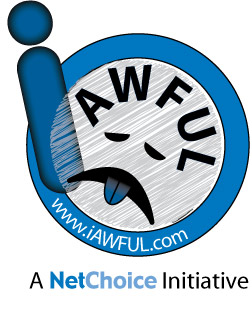[Cross-posted at Truth on the Market]
Here we go again. The European Commission is after Google more formally than a few months ago (but not yet having issued a Statement of Objections).
For background on the single-firm antitrust issues surrounding Google I modestly recommend my paper with Josh Wright, Google and the Limits of Antitrust: The Case Against the Antitrust Case Against Google (forthcoming soon in the Harvard Journal of Law & Public Policy, by the way).
According to one article on the investigation (from Ars Technica):
The allegations of anticompetitive behavior come as Google has acquired a large array of online services in the last couple of years. Since the company holds around three-quarters of the online search and online advertising markets, it is relatively easy to leverage that dominance to promote its other services over the competition.
(As a not-so-irrelevant aside, I would just point out that I found that article by running a search on Google and clicking on the first item to come up. Somehow I imagine that a real manipulative monopolist Google would do a better job of white-washing the coverage if its ability to tinker with its search results is so complete.)
More to the point, these sorts of leveraging of dominance claims are premature at best and most likely woefully off-base. As I noted in commenting on the Google/Ad-Mob merger investigation and similar claims from such antitrust luminaries as Herb Kohl:
If mobile application advertising competes with other forms of advertising offered by Google, then it represents a small fraction of a larger market and this transaction is competitively insignificant. Moreover, acknowledging that mobile advertising competes with online search advertising does more to expand the size of the relevant market beyond the narrow boundaries it is usually claimed to occupy than it does to increase Google’s share of the combined market (although critics would doubtless argue that the relevant market is still “too concentrated”). If it is a different market, on the other hand, then critics need to make clear how Google’s “dominance” in the “PC-based search advertising market” actually affects the prospects for competition in this one. Merely using the words “leverage” and “dominance” to describe the transaction is hardly sufficient. To the extent that this is just a breathless way of saying Google wants to build its business in a growing market that offers economies of scale and/or scope with its existing business, it’s identifying a feature and not a bug. If instead it’s meant to refer to some sort of anticompetitive tying or “cross-subsidy” (see below), the claim is speculative and unsupported.
The EU press release promotes a version of the “leveraged dominance” story by suggesting that
The Commission will investigate whether Google has abused a dominant market position in online search by allegedly lowering the ranking of unpaid search results of competing services which are specialised in providing users with specific online content such as price comparisons (so-called vertical search services) and by according preferential placement to the results of its own vertical search services in order to shut out competing services.
The biggest problem I see with these claims is that, well, they make no sense. Continue reading →






 The Technology Liberation Front is the tech policy blog dedicated to keeping politicians' hands off the 'net and everything else related to technology.
The Technology Liberation Front is the tech policy blog dedicated to keeping politicians' hands off the 'net and everything else related to technology.